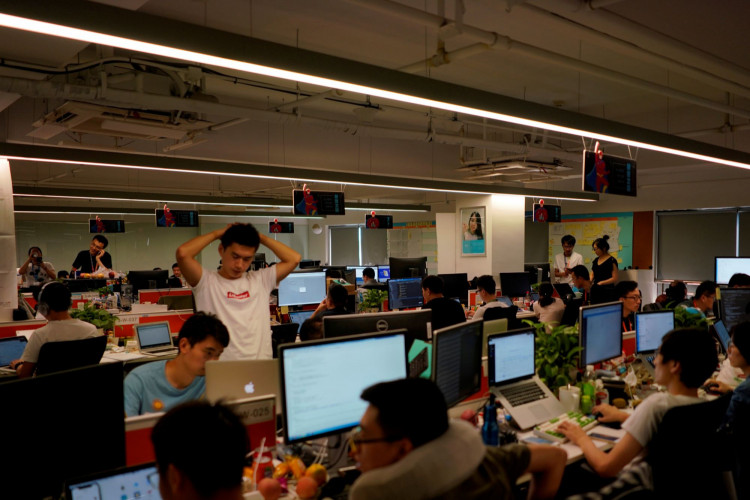Rising tensions between China and the United States have extended to the video call services as its tech giants Alibaba and Zoom compete in the global economy. The imposition of social distancing measures and work-from-home initiatives have skyrocketed the demand for teleconferencing services, and these technology companies have been the most sought-after in the market.
The pandemic paved the way for greater teleconferencing demand across the world. The two top-performing technology companies in the field are Alibaba and Zoom teleconferencing services. Digital divide risks compatibility problems with the US and Japanese business partners with Zoom has been referred to as a competitive advantage for Alibaba's video conference app.
DingTalk, the video conferencing app that Alibaba established, has the highest number of downloads in China during the first quarter of 2020. According to US analytics firm App Annie, the app is also used to share documents across team members through the all-in-one telecommunicating platform.
Tencent Meeting, on the other hand, came second in the most downloaded app for video conferencing. The US videoconferencing app Zoom was placed sixth in China during the first quarter of the year.
Japan director for App Annie Shunsuke Mukai further added that DingTalk remains the most well-known business chat tool in China.
In the US, Zoom's Video Communications remain the top video conferencing app, while Microsoft Teams comes in second. In Japan, Zoom is ranked in second, while Microsoft Teams is at fifth.
The report then claimed that the anti-sentiments from the US against China during the trade war could cause problems for Microsoft Teams and Zoom. The division could cause issues such as Chinese professionals opting for video conferencing features with American or Japanese apps.
At present, Chinese tech companies Alibaba and Tencent released Japanese-language versions of their applications. Still, Japan has not changed its consumer preference. At this stage, Zoom is still considered as the most realistic option for video conferencing services with Chinese enterprises. The app, however, was temporarily blocked from China for routing non-Chinese communications using Chinese data centres.
Alibaba has retooled, rebuilt, and recovered during the pandemic. Its DingTalk app has offered video conferencing and live streaming features that can cater to 300 participants. It also allowed cloud-based document editing and approval of daily health surveys for company employees. At present, the services remain free for over 200 million users that work for more than 10 million companies and organizations.
It also launched the Online Classroom initiative fit for educators and students. It comes with free services such as online testing and grading features.





